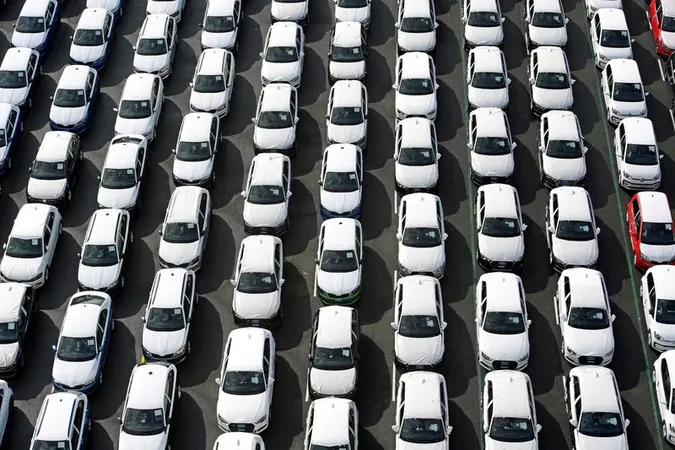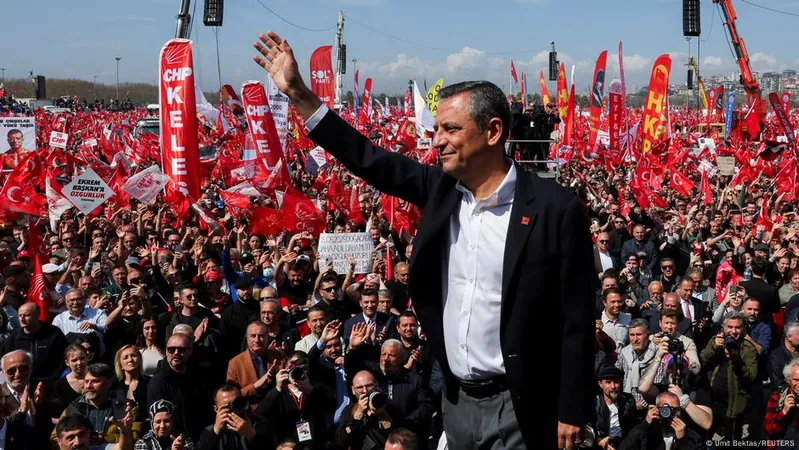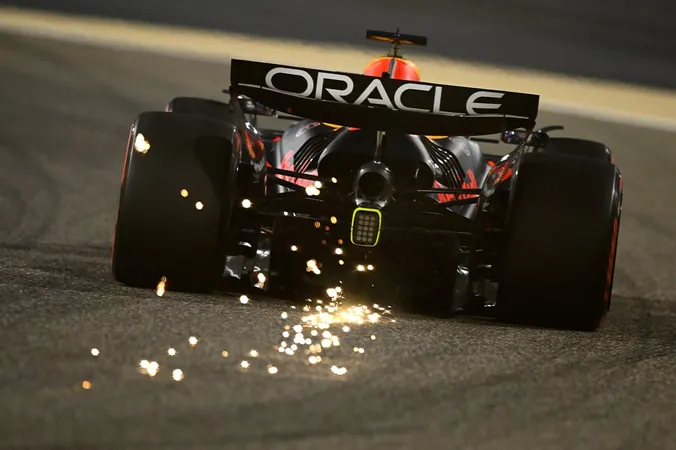
Shocking $495 Million EU Fine Hits Major Automakers Over Recycling Cartel!
2025-04-01
Author: Yan
Introduction
In a stunning development, the European Commission has hit Volkswagen, Stellantis, and 13 other prominent automakers with an eye-watering fine totaling 458 million euros ($495 million) for their involvement in a vehicle recycling cartel that spanned nearly 15 years.
The Cartel's Operations
The investigation, which began three years ago, uncovered that between May 2002 and September 2017, these car manufacturers colluded under the auspices of their trade organization, ACEA, to manipulate the recycling of end-of-life vehicles. This unethical behavior involved secret meetings and agreements not to compete in advertising the ecological benefits of their cars’ recyclability, and even involved hiding the percentage of recycled materials used in their new vehicles! Such actions have significant implications, as they undermine customer choice and public awareness regarding environmentally friendly products.
Impact on Environment and Consumers
The cartel's practices were not only detrimental to the environment but also to consumers. EU law mandates that automakers are responsible for supporting the recycling of end-of-life vehicles, allowing car owners to dispose of their old cars without cost. Instead, these companies conspired to bypass their obligations by refusing to pay dismantlers for recycling services.
Regulatory Response
Teresa Ribera, the EU's antitrust chief, firmly stated, 'We will not tolerate cartels of any kind, and that includes those that suppress customer awareness and demand for more environmentally friendly products.' This stern warning reflects the EU's commitment to protecting consumer rights and promoting sustainable practices.
Fines Imposed
Volkswagen found itself facing the heftiest fine, amounting to 127.69 million euros. Other notable fines included Renault-Nissan at 81.46 million euros, Stellantis at 74.93 million euros, and Ford at 41.46 million euros. Other companies caught in the crossfire of this scandal include major players such as Toyota, Mitsubishi, Honda, Hyundai, and Suzuki, each facing significant penalties.
Whistleblower Benefits
Interestingly, Mercedes-Benz managed to escape consequences entirely by being the first to inform EU regulators about the cartel, highlighting the importance of whistleblowing in corporate ethics.
Conclusion
The ACEA, which facilitated the cartel's operations, received a fine of 500,000 euros. All implicated automakers admitted to their wrongdoing and received a 10% reduction in their fines as part of the settlement. This colossal fine serves as a crucial reminder of the importance of accountability in the automotive industry, especially as environmental awareness rises and consumers demand greater transparency and responsibility from car manufacturers. Will this lead to a reevaluation of practices in the industry? Only time will tell!





 Brasil (PT)
Brasil (PT)
 Canada (EN)
Canada (EN)
 Chile (ES)
Chile (ES)
 Česko (CS)
Česko (CS)
 대한민국 (KO)
대한민국 (KO)
 España (ES)
España (ES)
 France (FR)
France (FR)
 Hong Kong (EN)
Hong Kong (EN)
 Italia (IT)
Italia (IT)
 日本 (JA)
日本 (JA)
 Magyarország (HU)
Magyarország (HU)
 Norge (NO)
Norge (NO)
 Polska (PL)
Polska (PL)
 Schweiz (DE)
Schweiz (DE)
 Singapore (EN)
Singapore (EN)
 Sverige (SV)
Sverige (SV)
 Suomi (FI)
Suomi (FI)
 Türkiye (TR)
Türkiye (TR)
 الإمارات العربية المتحدة (AR)
الإمارات العربية المتحدة (AR)